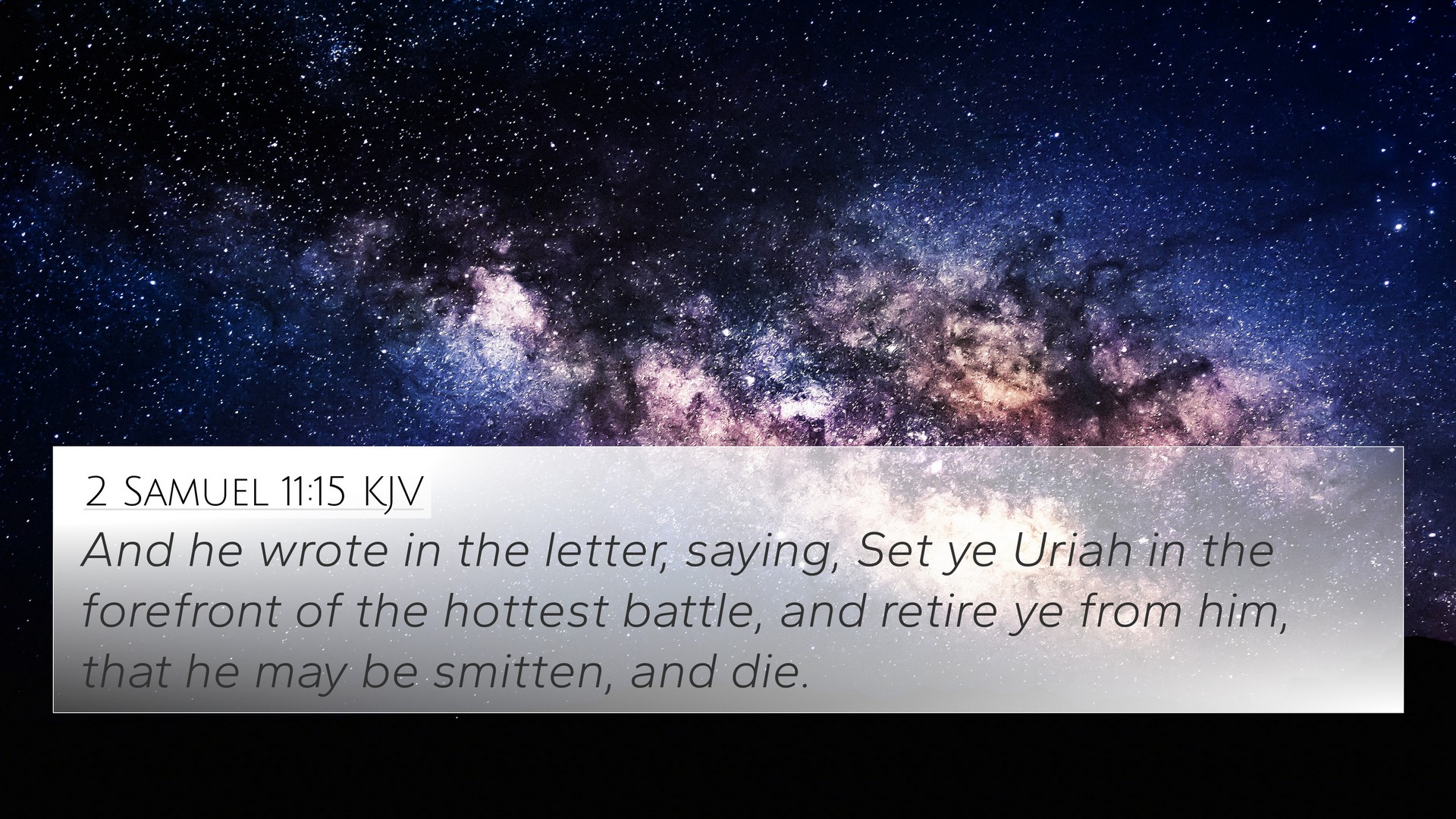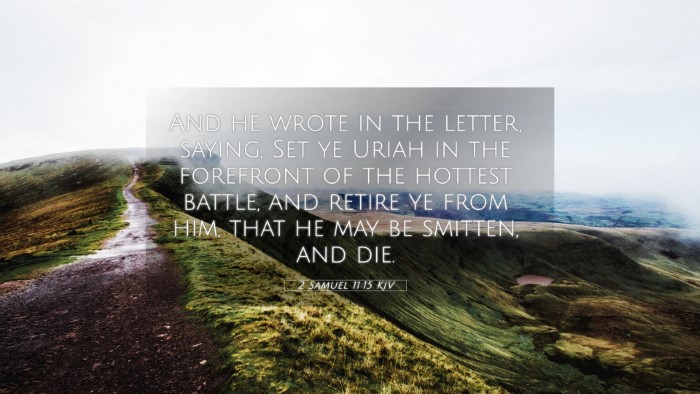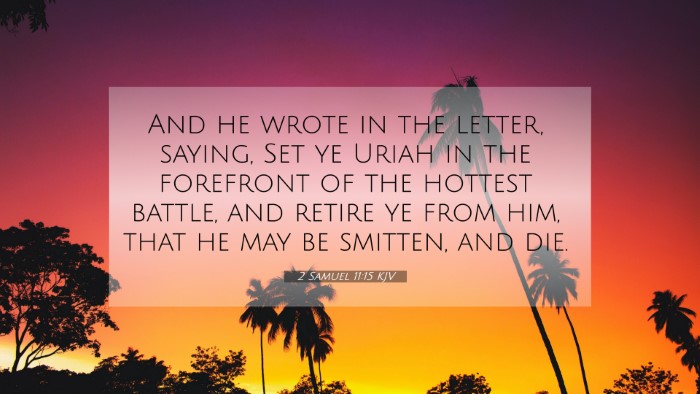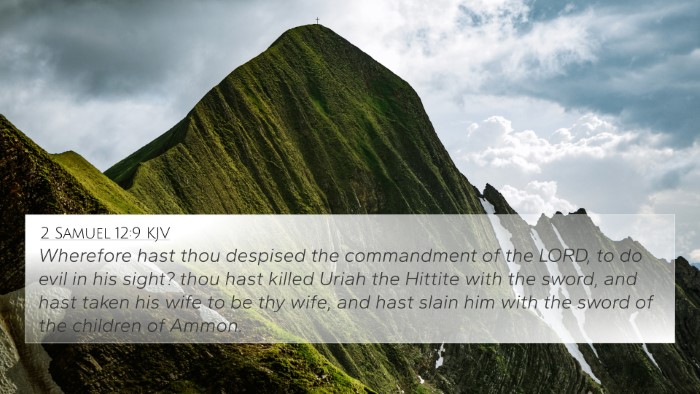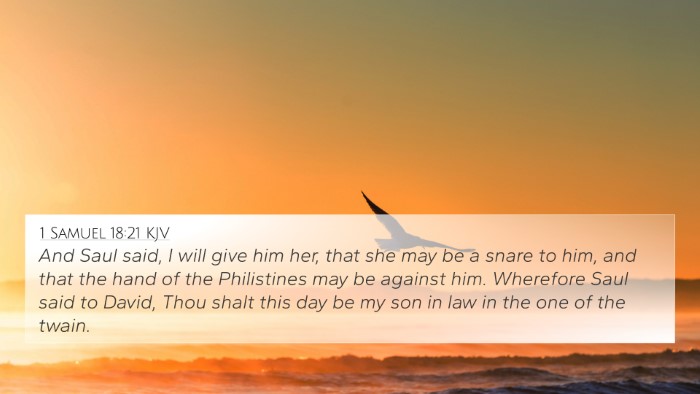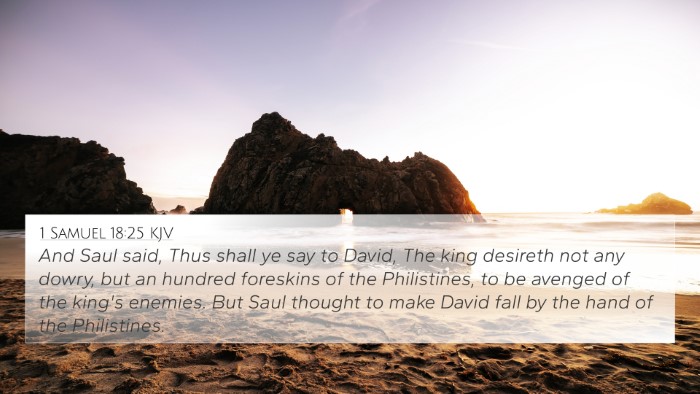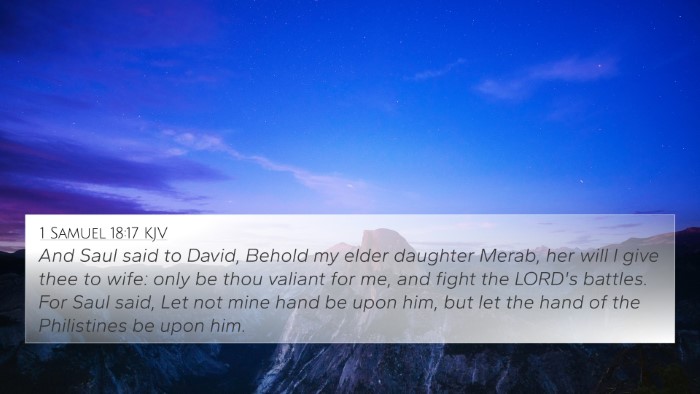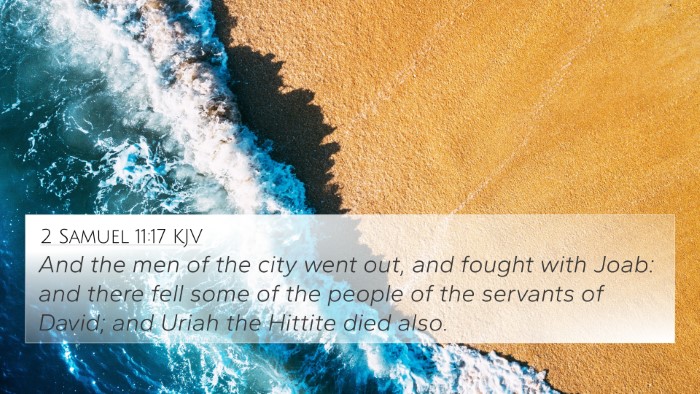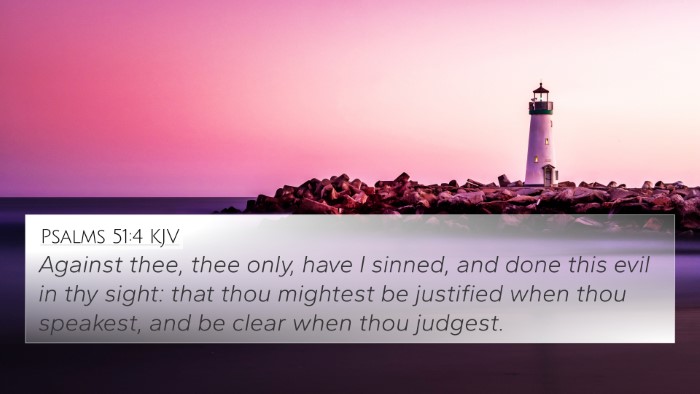Understanding 2 Samuel 11:15
Bible Verse: 2 Samuel 11:15 - "And he wrote in the letter, saying, Set ye Uriah in the forefront of the hottest battle, and retire ye from him, that he may be smitten, and die."
Overview of the Verse
This verse captures a crucial moment in the life of King David that reveals a grave ethical lapse and manipulation leading to the demise of Uriah. By orchestrating Uriah's death through a covert order to place him on the front lines of battle, David's actions highlight themes of sin, the consequences of lust, and moral degradation.
Thematic Interpretations
- Sin and Consequences: David's willingness to use Uriah as a pawn demonstrates the extent of his moral failure.
- Abuse of Power: The verse illustrates how authority can be abused for personal gain.
- Moral Downfall: David's descent from a man after God's own heart to one who consciously plots murder serves as a sobering reminder of human frailty.
Commentary Insights
Matthew Henry: Henry notes that David's plan to have Uriah killed was a calculated effort to cover up his sin with Bathsheba. He emphasizes that this action was not only an affront to Uriah but also a direct violation of God's commandments.
Albert Barnes: Barnes elaborates on the gravity of David’s command, asserting that it reflects a heart hardened by guilt. He suggests that David's initial desire for Bathsheba initiated a chain of events leading to this tragic outcome, showcasing the moral decline of Israel’s king.
Adam Clarke: Clarke points out the treachery in David’s actions, underlining the manipulative nature of the letter sent to Joab. He positions this event within the broader narrative of God’s judgment against David’s sin.
Related Bible Cross References
To enrich the understanding of 2 Samuel 11:15, we can look at several cross-references that connect thematically and contextually:
- 2 Samuel 11:2-4: The introduction of David’s sin with Bathsheba.
- 2 Samuel 11:14: David’s scheme put into action—sending the letter to Joab.
- 2 Samuel 12:9: Nathan confronts David about his sin, providing insight into the repercussions of his actions.
- Psalm 51: David's penitential psalm following his sin indicates his remorse.
- Exodus 20:13: The commandment against murder, showcasing the violation of divine law.
- Proverbs 6:32-33: Wisdom literature pertaining to the consequences of adultery.
- 1 Chronicles 11:41: Reference to Uriah, providing historical context.
- Matthew 5:27-28: Jesus's teaching on adultery reveals the inner morality relevant to the actions of David.
- Galatians 6:7: A universal principle about reaping what one sows, relevant to David’s fate.
- Romans 2:6-8: Divine judgment according to deeds that echoes the themes central to David's story.
Connecting Themes Across Scripture
This narrative serves as a cautionary tale, emphasizing the interpersonal and divine repercussions of sin. The connections between these highlighted verses provide a comprehensive understanding of the spiritual and moral implications embodied in 2 Samuel 11:15.
Tools for Cross-Referencing
For those seeking to explore these connections further, utilizing a Bible concordance or a Bible cross-reference guide can enhance the study experience. Techniques such as cross-referencing Bible study methods can assist in uncovering intricate links between biblical texts.
Conclusion
2 Samuel 11:15 is not just a historical record—it's a profound lesson on the complexities of human behavior, the dangers of unchecked desires, and the critical need for accountability. By examining scripture in a cross-referenced manner, believers can draw valuable insights that illuminate God's character and the consequences of turning away from His commands.
